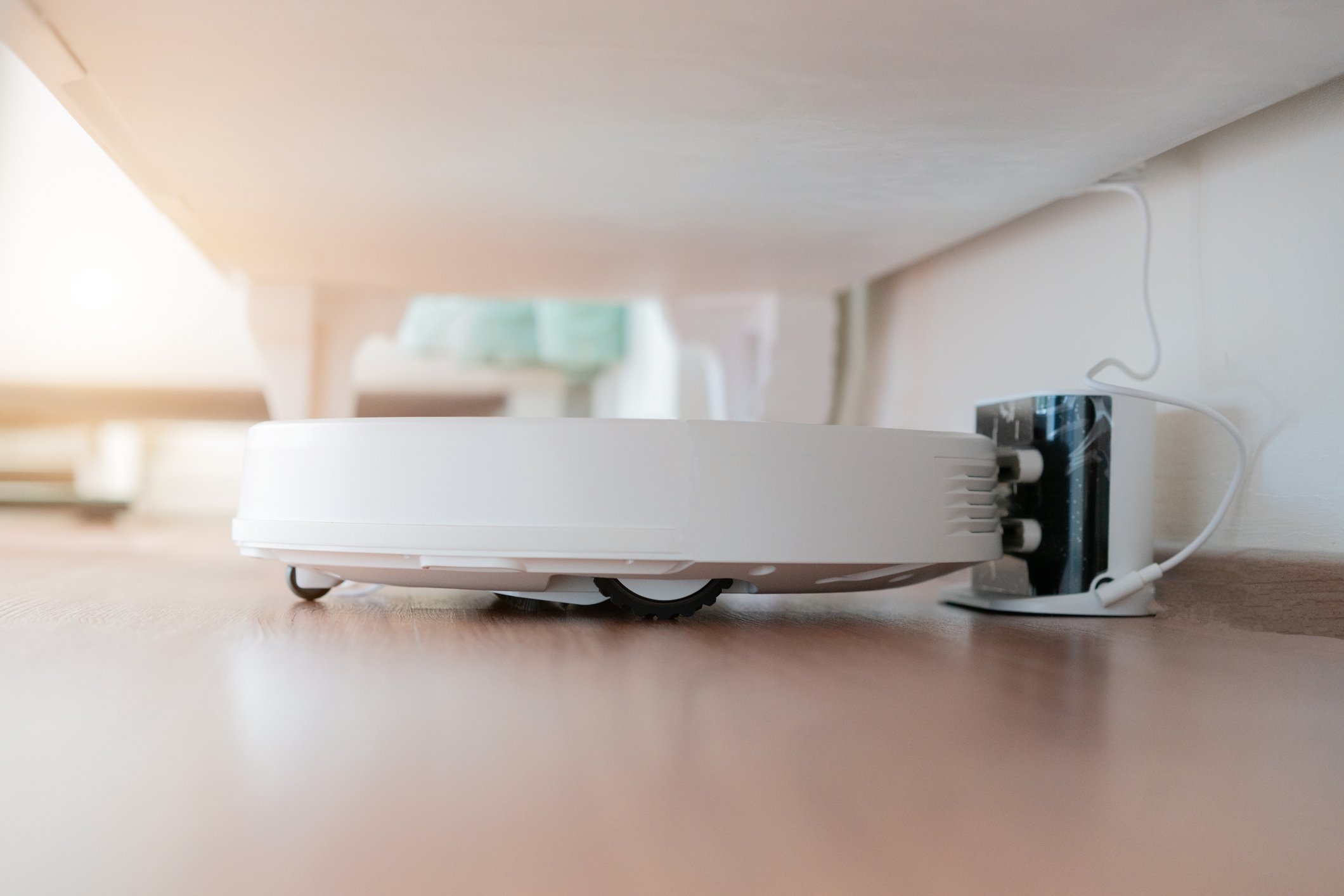Around this time last year, iRobot (IRBT +0.00%) announced plans to expand the mapping functionality of its Roomba robotic vacuums to include Wi-Fi-strength maps. iRobot founder and CEO Colin Angle outlined a vision at the time for taking smart homes to the next level by positioning Roomba -- with its growing spatial awareness of any given building -- as a sort of "unifying intelligence" to tie together various smart-home devices.
Indeed, the latest Roombas can already build detailed room-delineated maps of your home, and even work together with its Braava floor-mopping robots to more effectively finish their respective tasks. And thanks to integrations with the most popular voice assistants, they can even respond to room-specific voice commands such as, "Alexa, tell Roomba to clean the kitchen."
Now, however, iRobot is taking the next logical steps toward enabling truly smart homes.

IMAGE SOURCE: IROBOT.
In a press release Tuesday morning, iRobot announced a new partnership with integration and discovery platform IFTTT to deliver compelling new in-app smart-home innovations to "more extensively interact with other devices in the home."
To start, most prominent among the new features created by iRobot and IFTTT are variations of the ability to trigger cleaning jobs by communicating with various popular smart-home devices -- say, for example, you want to schedule Roomba to run when your thermostat is set to "away" for a certain period of time, or when all family members have left the house (as indicated by popular location-tracking app Life360).
But iRobot isn't stopping at simply getting more creative about how and when your Roomba cleans. As Angle indicated a year ago, the company wants Roomba to be a central hub to better inform the way other smart-home devices function.
"Sense, think, and act..."
In a separate blog post this morning, Angle wrote that in order to realize most consumers' visions of a truly smart home, "the house must sense, think, and act ... just like a robot."
To be fair, Angle admits homes already do two of these things well -- motion and temperature sensors can easily trigger action by changing lighting and climate settings, for example. But a house can't "think" like robots, Angle argues, "[b]ecause it has very little knowledge of the physical space it's supposed to thoughtfully act upon!"
Angle elaborated:
Even at the most basic level, [the house] doesn't have a reliable map of the home. It doesn't know how that map breaks down into rooms, what those rooms are used for, and most critically, what is in each of those rooms -- furniture and smart devices alike. ... Now imagine that as Roomba becomes more fully aware of the wi-fi devices in the home, and combines that capability with the natural interfaces we presently have into the smart home -- like Amazon Alexa and Google Home -- you can start to see how in short order the promise of the smart home experience becomes even more fully delivered. You might say, "Alexa, turn on the lights around the couch in the living room."
Of course, this isn't a selfless proposition. iRobot is essentially working to cement its robots as key enablers of a more seamless smart-home experience for the masses. If it's successful, and as the Internet of Things continues to gain steam, it could go a long way toward maximizing the value proposition of its robot portfolio, given increasingly fierce competition in the home-robotics space.





